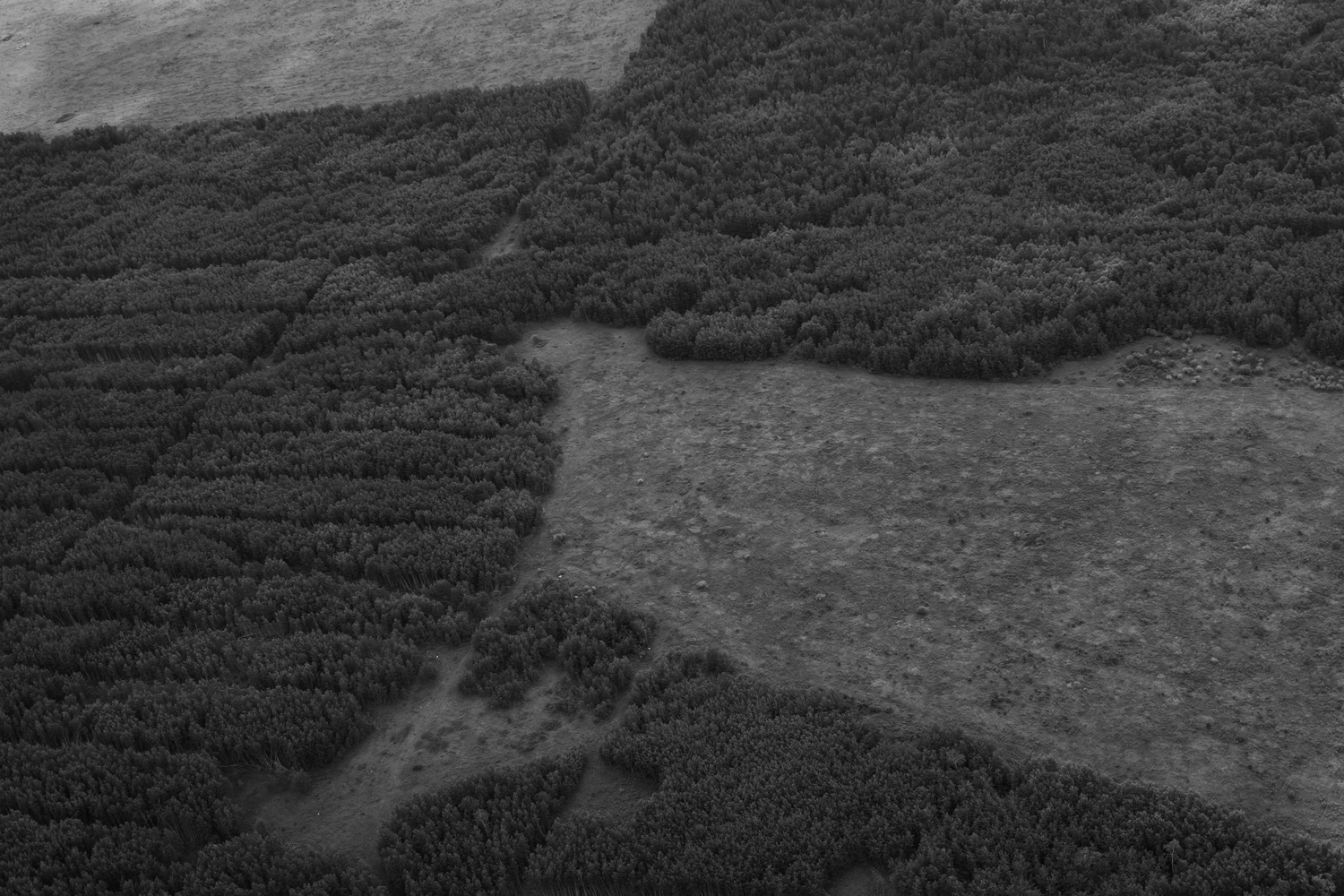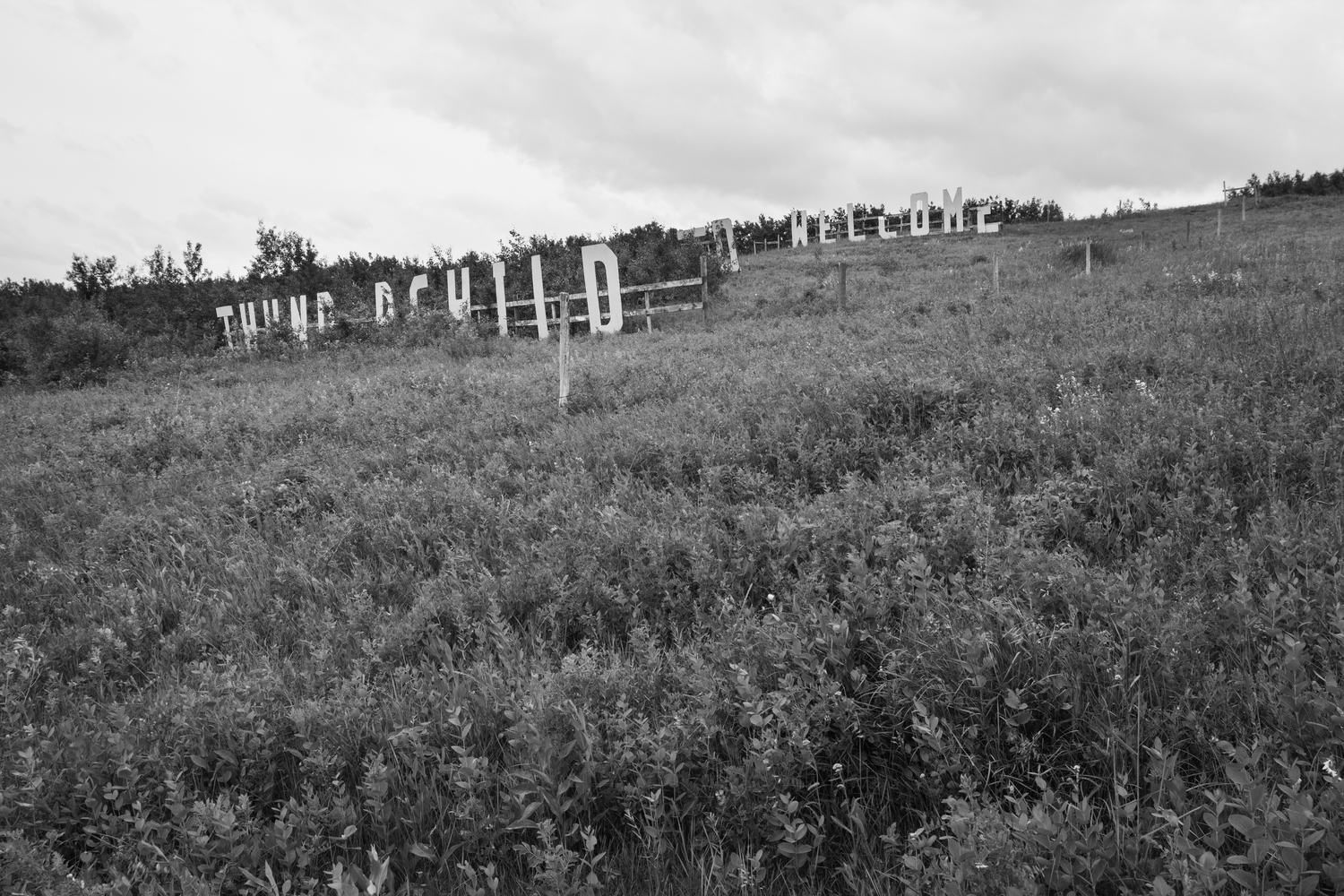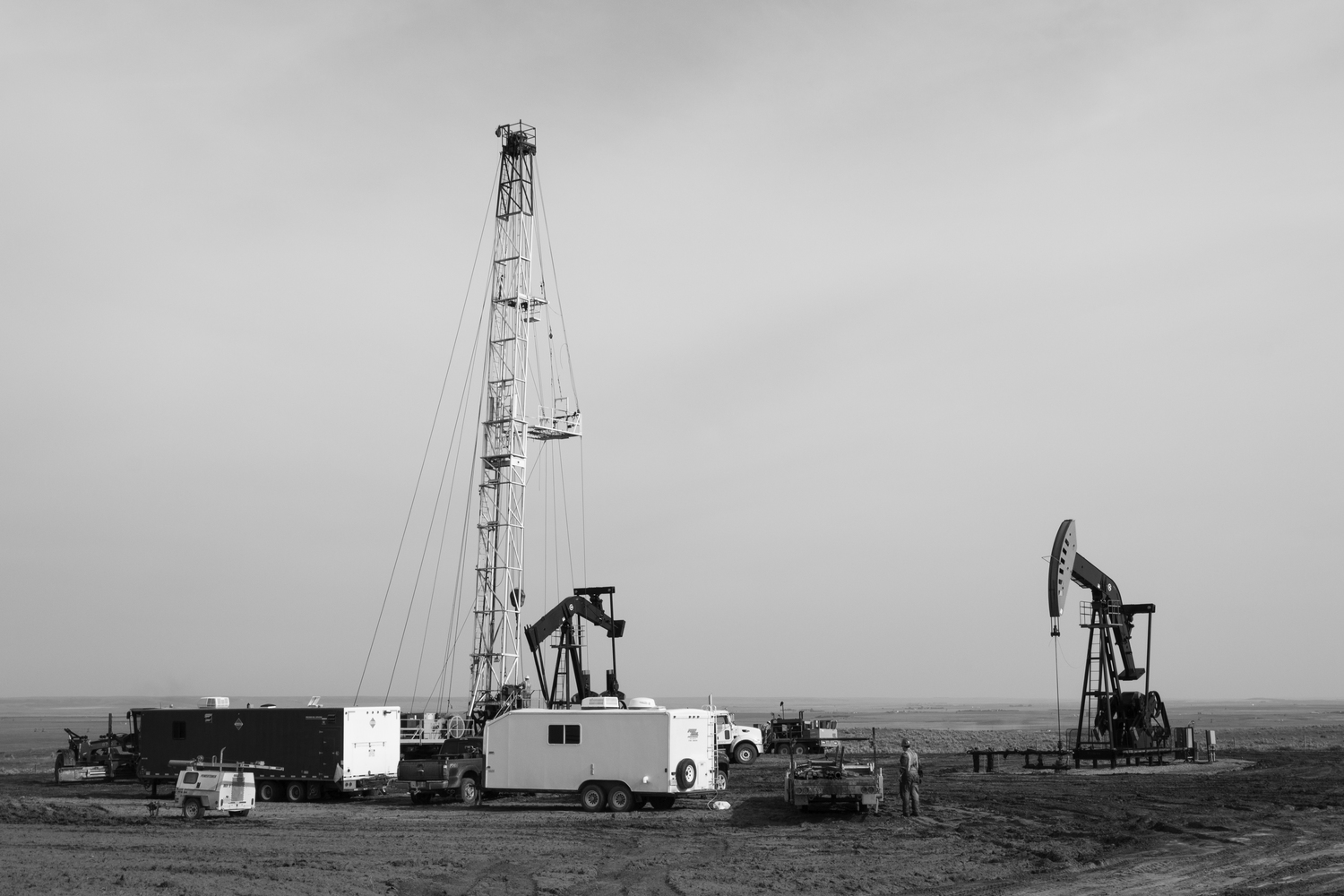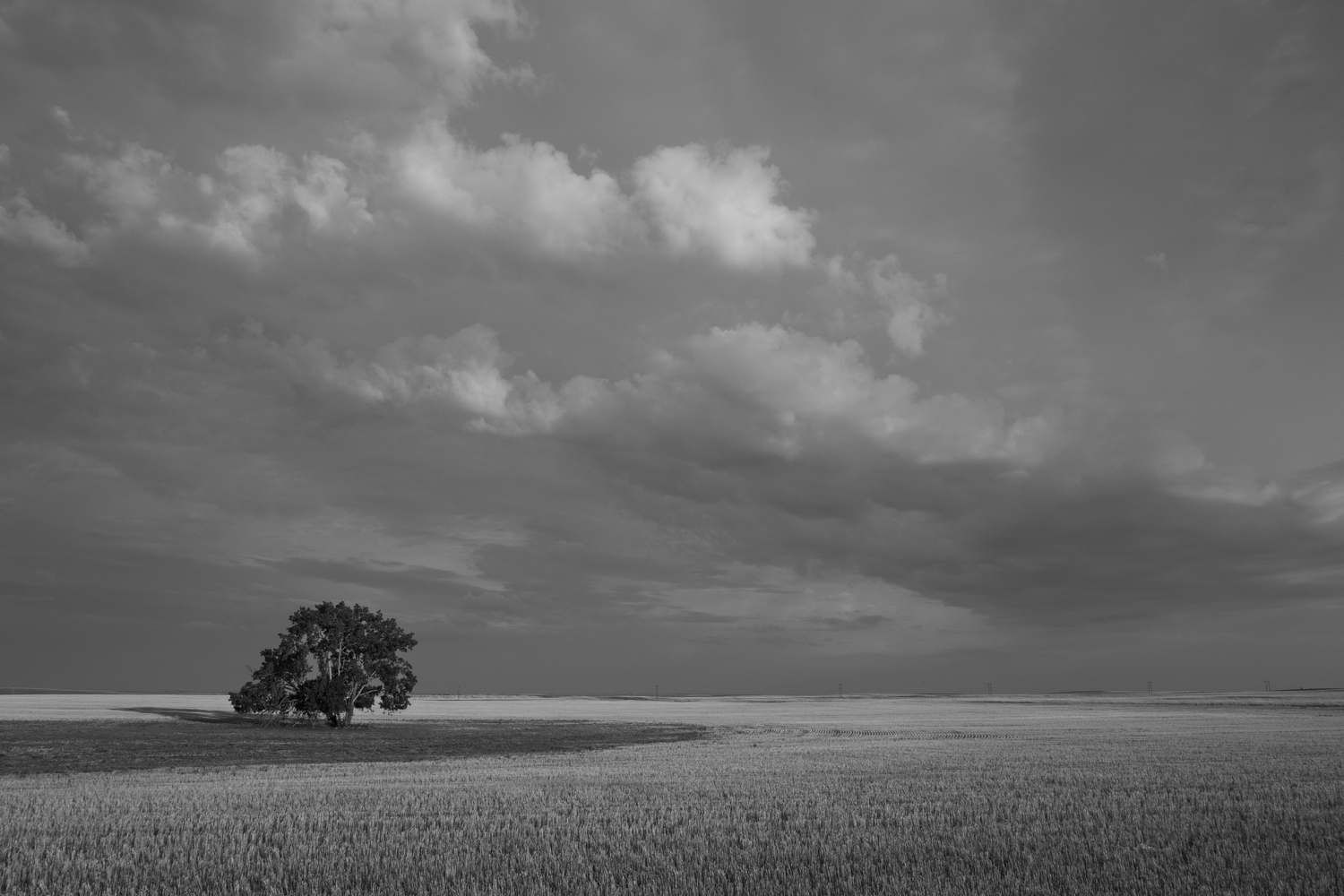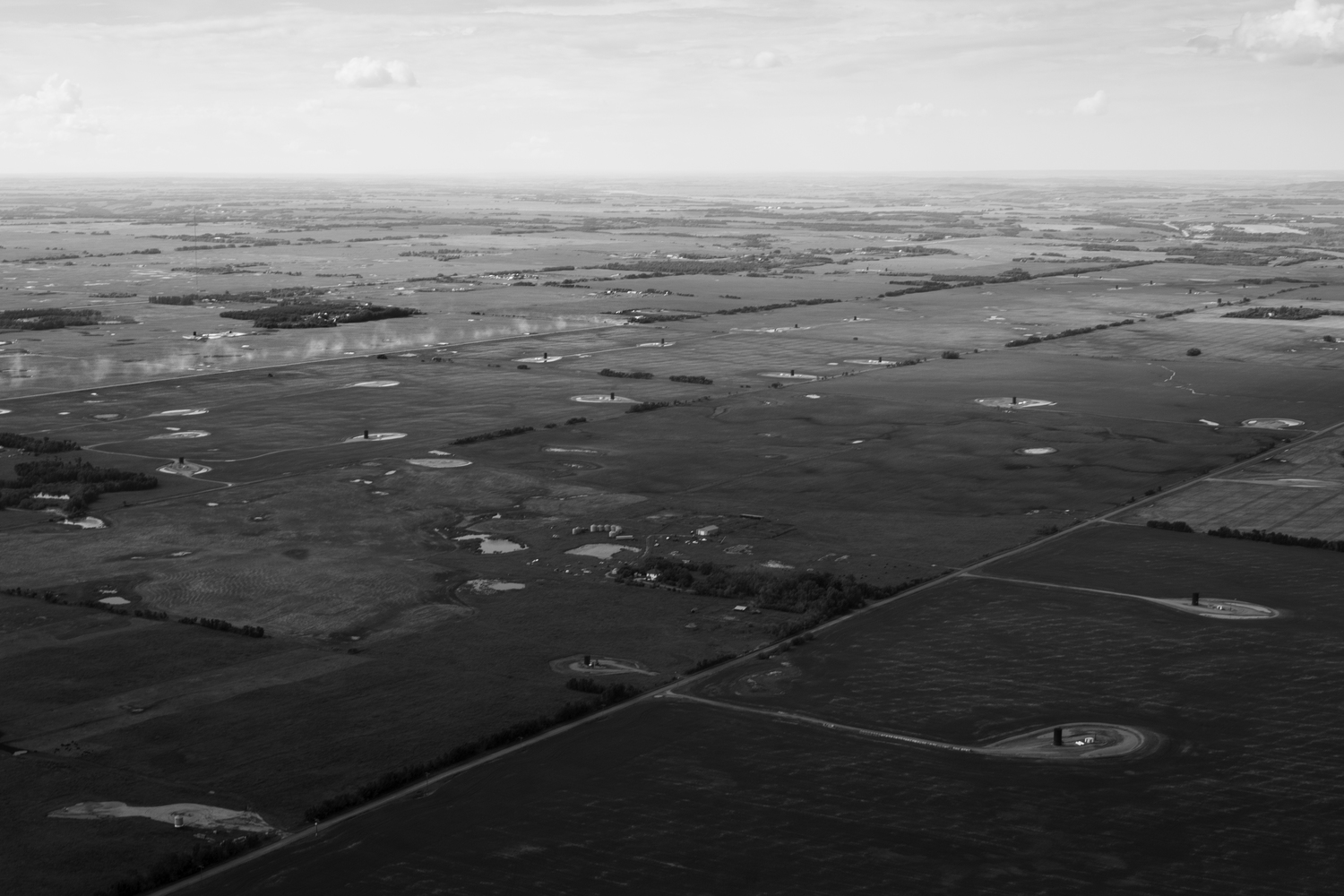Tom Kyle
Emily Eaton
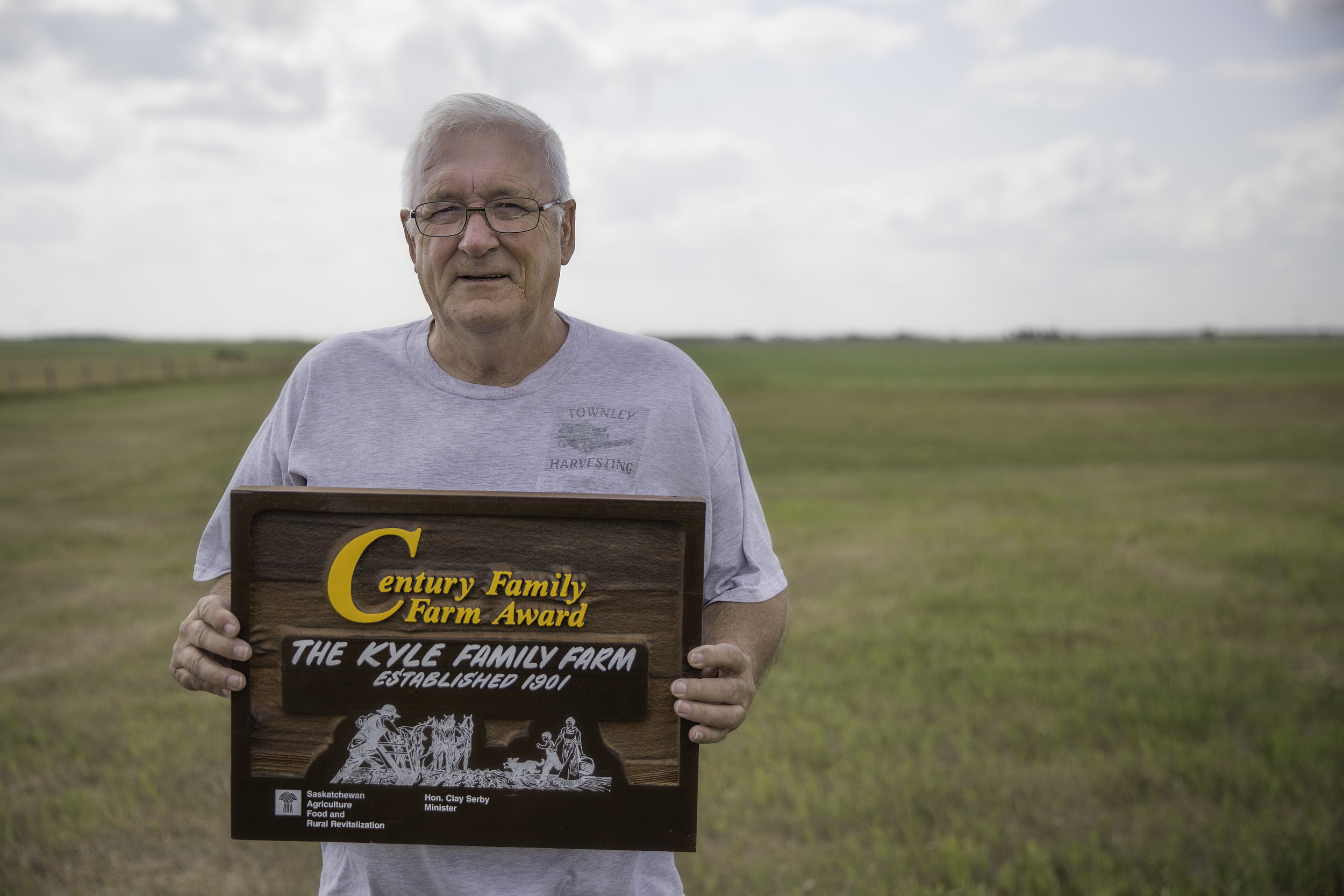
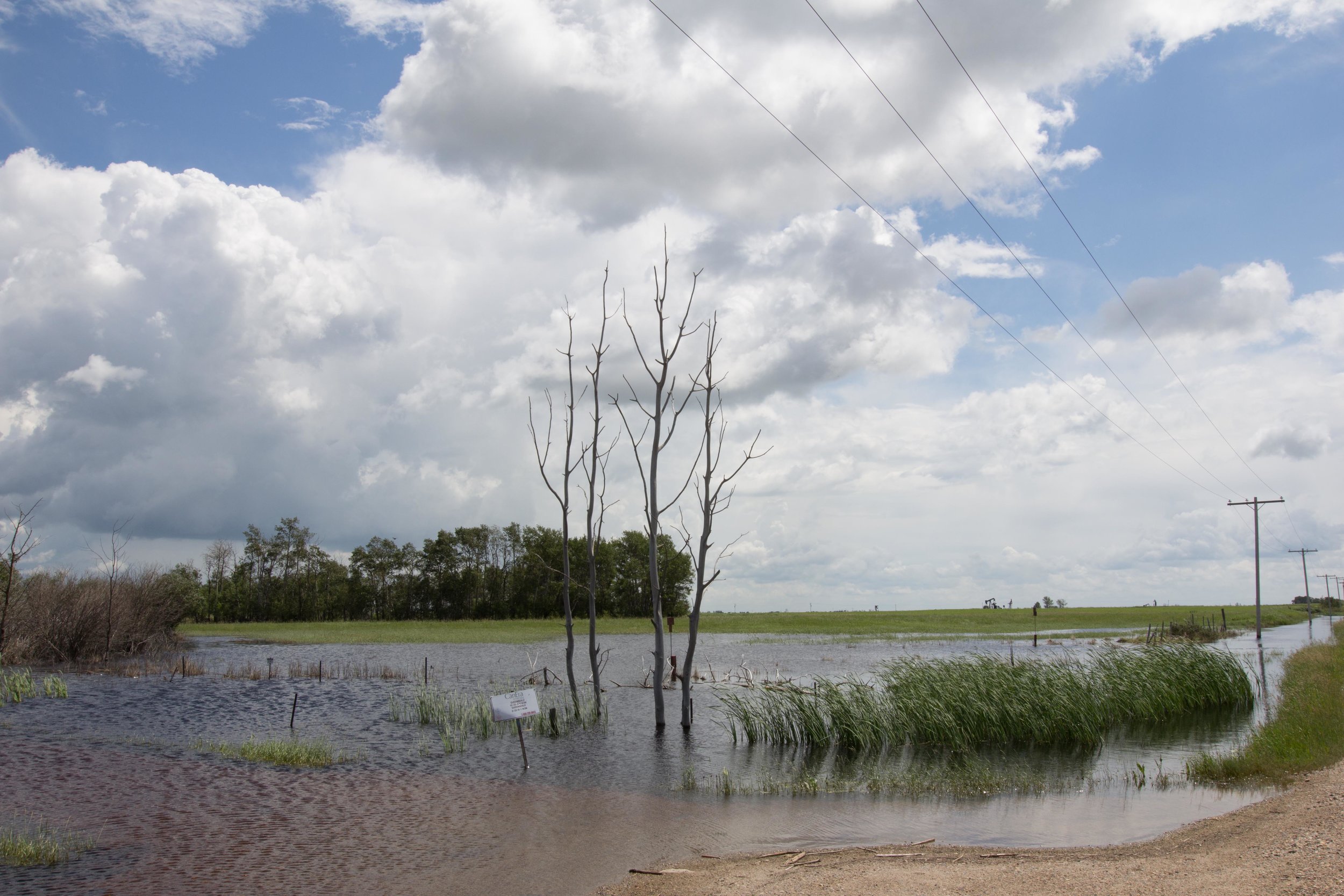
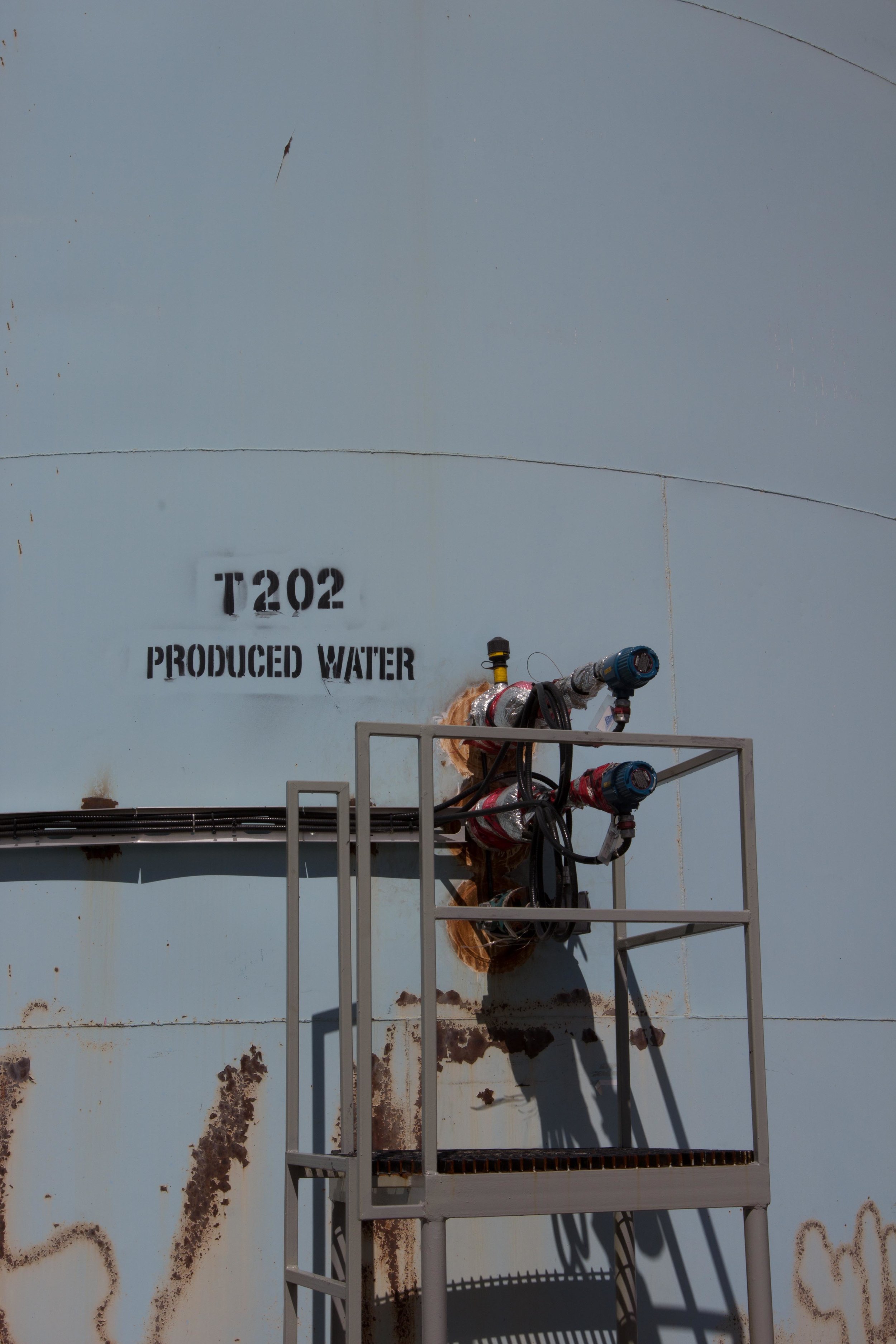
Tom Kyle and his family have been farming one section of land south of Manor, Saskatchewan for more than 115 years. In the 1980s the oil industry arrived and drilled several wells and installed a battery on his farm. In 1989 one of the tanks on the battery leaked salt water that contaminated the lease site and surrounding fields. He has been trying to get it cleaned up ever since without luck. Since 1989 many different companies have owned the battery and each company has failed to fully remediate the site.
Tom explained that when a new company takes over they send in new environmental consultants to study the site. Over the years the studies have piled up while the salt water contamination continues to spread further into his fields. More than 7 acres of land are now affected, as well as the creek that runs through the farm. He has complained numerous times to government regulators and appeared before the Surface Rights Arbitration Board on the matter, but has not had any luck having his land properly remediated.
Salt water contamination is a persistent problem for farmers as it impedes the growth of crops. For every barrel of oil extracted in the Southeast of the province, up to 90% of it is highly salinated water. This water is stored at battery sites and then taken away to disposal wells where it is discarded deep underground. Salinated water is easily spilled when tanks overflow, small pipelines carrying produced water to battery sites leak, or human error results in spills when it is transferred from tanks to trucks.
Tom is exasperated from running after companies, following up with environmental consultants, and complaining to government regulators. He is worried about the water well on his farm as several of his neighbours’ water wells and dugouts have been contaminated by salt water. He claims it’s not a matter of if, but when, he will no longer be able to drink the water from his own well. According to Tom, the oil industry did more damage to his land in five years, than the farm operation has done over 115 years.

